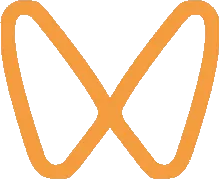《1 Introduction》
1 Introduction
The pharmaceutical industry, which is an important part of the national economy, is closely associated with people’s immediate interests such as healthcare and quality of life. Pharmaceutical colleges are the cradle of pharmaceutical talent training and pharmaceutical knowledge innovation. Whether pharmaceutical higher education can satisfy the increasing healthcare needs of people has long been a subject of significant public debate.
In China, recent socioeconomic developments and the restructuring of the pharmaceutical industry have enabled the rapid growth of the pharmaceutical industry and medical and health sector, integration of multiple disciplinary fields (e.g., biology, chemistry, and medicine), and a trend of cross-penetration and comprehensive development [1]. Therefore, China’s innovation-driven development strategy incorporates bio-pharmacy as one of the 10 key breakthrough fields and establishes the vision of transforming China into a world leader in terms of innovation by 2030 [2]. As a prelude to the realization of this goal, China’s pharmaceutical industry is undergoing a strategic shift from the production of generic drugs to the development of original drugs. In terms of the research and development (R&D) of innovative drugs, China is keeping pace with advanced countries and gradually transforming itself from being a follower to becoming a leader.
Hence, this paper summarizes the status of pharmaceutical talent training in China and discusses the problems encountered while providing training to pharmaceutical talents in colleges. From the perspective of training innovative pharmaceutical talents, this paper proposes a series of strategic measures and specific suggestions to realize the objective of providing pharmaceutical talent training oriented toward the R&D of new drugs. The ultimate purpose of this paper is to cater to the requirements of social development, technological progress, and diversification of pharmaceutical disciplines.
《2 Status quo of pharmaceutical talent training in China》
2 Status quo of pharmaceutical talent training in China
In its initial stages, undergraduate pharmaceutical education in China followed the highly academic talent training model implemented in the former Soviet Union (specifically, matching jobs to specialized education); further, it was drug centered and mainly intended the development of production and research talents. As a result, pharmaceutical disciplines are extremely diversified, subdivided, and susceptible to tunnel vision, and pharmaceutical college students may have a narrow scope of knowledge and may be deficient in terms of adaptability, humanistic literacy, and an innovative spirit. Specifically, in the context of shifting from imitation to innovation, China’s pharmaceutical talent training encounters several problems, which are discussed in the following subsections.
《2.1 Deficiency in innovative thinking and comprehensive quality》
2.1 Deficiency in innovative thinking and comprehensive quality
The presence of a deficiency in innovative consciousness and comprehensive quality has been a major bottleneck in the provision of innovative pharmaceutical talent training. Innovative consciousness refers to the motivation of people to create unprecedented things or ideas according to social and personal development requirements, and it is the starting point of and provides internal impetus to people’s creative activities [3]. The innovative consciousness of pharmaceutical talents is manifested in their courage to attempt various activities, creative efforts, and wishes and abilities to discover new realms of pharmacy. The innovative consciousness and comprehensive quality of pharmaceutical talents are necessary not only to further China’s modernization but also to meet the new situations arising from the rise in global technological and economic competitiveness. Innovative talents in the pharmaceutical industry should possess not only strong professional skills but also a wish and the abilities to discover pharmaceutical solutions and new research area. Therefore, in the context of a shift in the pharmaceutical industry’s focus from imitation to innovation, innovative consciousness, thinking, and ability are manifestations of the comprehensive quality of pharmaceutical college students and are of vital importance to the provision of integrated pharmaceutical talent training [4].
The pharmaceutical education system in China is based on the fundamentals of the former Soviet Union’s pharmaceutical education system and has experienced multiple rounds of reform. However, with respect to the teaching process, China’s education system is inevitably influenced by the “emphasizing knowledge inheritance but disregarding knowledge creation” mindset and the macro-environment. Hence, the innovative ability of pharmaceutical students is inadequately developed, innovative atmosphere of pharmaceutical colleges is insufficient, and integration with frontier and edge disciplines is generally ignored. All these conditions are not beneficial to the development of innovative consciousness and comprehensive quality. In addition, pharmaceutical college students should acquire a wide range of medical and pharmaceutical knowledge and are burdened more heavily compared to college students in other disciplines. Although some pharmaceutical students are committed to academic learning, they often ignore the training with respect to humanistic literacy, scientific thinking, and the ability to apply theoretical knowledge to resolve practical problems. Therefore, they lack the knowledge foundation required for innovation and further development potential.
Further, the pharmaceutical talents trained under the aforementioned teaching system lack critical thinking; hence, they dare not, and often do not know, how to question their learnings in colleges. This is an important manifestation of the deficiency of pharmaceutical college students in terms of innovativeness. In summary, the deficiency of students with respect to innovative consciousness and comprehensive quality is a universal problem resulting from China’s pharmaceutical talent training and has become a bottleneck in integrated pharmaceutical talent training, which fails to satisfy the growing demand for innovative pharmaceutical talents. Therefore, updating the concept of talent training is of utmost importance.
《2.2 Limited availability of practicing bases, and prevalence of weak application ability》
2.2 Limited availability of practicing bases, and prevalence of weak application ability
Due to a shortage of pharmaceutical talent training bases, innovative pharmaceutical talent training is unlikely to become a reality in China. Pharmacy is a highly practical and applied discipline; hence, practical teaching is an important requirement to develop the practical skills of pharmaceutical college students. Due to the rapid development of its pharmaceutical industry, China is facing an increasing demand for and placing higher requirements on pharmaceutical talents with problem-solving abilities.
However, the currently available specialized courses and textbooks for pharmaceutical disciplines in Chinese colleges do not satisfy the requirements of practical pharmaceutical jobs. First, the pharmaceutical talent training model concentrates on chemical and pharmaceutical knowledge; further, curriculum offerings are stereotyped, and the learning of specialized theories forms an excessive proportion of the curricula. Second, practical teaching is encountering several problems, such as content restrictions and low quality of teaching, the propensity to start from theoretical concepts and attachment to theoretical teaching, and a lack of the objectives of professional skill training; therefore, pharmaceutical students cannot develop their practical, innovative, independent working, or collaboration ability to the fullest extent. Third, humanistic curricula are not sufficient, and the quality and effectiveness of moral education curricula are unsatisfactory [5]. In summary, the traditional pharmaceutical talent training model cannot satisfy the demand of the rapidly developing society for pharmaceutical talents.
Talent training bases form an important part of the innovative pharmaceutical talent training system. Good pharmaceutical talent training bases help develop a discipline-based and specialization-oriented cooperative pharmaceutical talent training mechanism with industry–college–research and institute–college cooperation. In China, the construction of pharmaceutical talent training bases is associated with two main problems: First, the number of these bases is not sufficient to satisfy students’ practical learning requirements, which weakens the impetus of the pharmaceutical teaching reform. Further, the bases lack a sufficient exploratory spirit; specifically, the innovative talent training model is stereotyped and, hence, it cannot improve the quality of talent training. Moreover, applied onsite training is not provided and, hence, the social service ability of pharmaceutical talents remains unimproved. Second, the resource support for talent training is not sufficient due to various reasons (e.g., indifference shown by the cooperating parties, poor resource allocation and sharing of social training platforms, and insufficient institute–college cooperation). The availability of opportunities for practice is limited, practice time is relatively short, and talent training procedure is not systematic; hence, the effectiveness of talent training remains unsatisfactory.
Evidently, the examination-oriented curriculum offered by colleges ignores the training of students’ practical ability, and pharmaceutical talent training bases ignore the training of their social service ability. Consequently, China’s pharmaceutical talents lack strong practical ability and do not satisfy the human-centered service requirements in the field of pharmacy. Therefore, it is a matter of urgency to update the existing talent training concept, deepen the relevant educational reform, and completely develop students’ practical ability.Specifically, the abilities to discover, analyze, and solve problems across the teaching process; teach knowledge in specific problem-solving scenarios and in the context of scientific development; and stimulate students to build their knowledge systems through active exploration should be developed. The final purpose is to help students develop their innovative thinking and scientific research abilities, effectively apply their acquired theoretical knowledge to practice, and adapt to the ever-changing requirements of social development and technological progress.
In summary, the pharmaceutical talents in China lack sufficient innovative ability, and the pharmaceutical talent training provided in colleges cannot satisfy the growing demand for pharmaceutical talents. In response to the complaints made by pharmaceutical students and employees (e.g., regarding how the learned knowledge is useless, and the useful knowledge is not learned), the existing pharmaceutical education model should be adjusted, diversified education be implemented, and innovative pharmaceutical talents be developed.
《3 Measures and suggestions on the training innovative pharmaceutical talents》
3 Measures and suggestions on the training innovative pharmaceutical talents
《3.1 Developing innovative ability through the R&D of new drugs》
3.1 Developing innovative ability through the R&D of new drugs
Pharmacy is closely related to human health, and the R&D of innovative drugs and personnel capable of performing this R&D are receiving increasing attention today. To satisfy the resulting countrywide, regional, and pharmaceutical industry–related demands for elites in pharmaceutical R&D, it is imperative that Chinese pharmaceutical colleges establish the objectives of pharmaceutical talent training oriented toward the R&D of innovative drugs and develop excellent pharmaceutical talents having innovative R&D abilities.
Chinese colleges must strengthen the training of scientific research ability and innovative ability provided to pharmaceutical students according to the current and future domestic demands for pharmaceutical R&D and innovation talents. Specifically, the following actions must be taken. First, it is necessary to strengthen the students’ subjectivity of scientific research by developing their interest in scientific research and sublimating this interest into their internal need for scientific research so that they transform the need for scientific research into an impetus for active exploration and take effective actions accordingly [6]. Second, it is necessary to increase the financial input of scientific research innovation, since sufficient fund support provides a powerful guarantee regarding the steady improvement of pharmaceutical talent training quality and institutionalized training of high-caliber scientific research innovation talents. The relevant authorities should increase the financial budget for pharmaceutical education; increase the proportion of pharmaceutical education funds compared to China’s total funds for higher education; and improve the current fund input model, which is dominated by governmental allocations. Third, it is necessary to create a favorable environment for scientific research innovation: A favorable scientific research environment is a prerequisite for scientific research innovation, and it ensures the quality of pharmaceutical talent training. It is necessary to strengthen the construction of innovation bases (particularly, bases ensuring industry–college–research cooperation) and, thereby, organically integrate students’ theoretical learning with their practical learning. Further, it is necessary to strengthen cooperation in terms of talent training between colleges and research institutes both within China and abroad and promote the integrated utilization of preponderant resources, thereby developing a joint talent training mechanism that makes the cooperating parties play complementary roles to each other. Fourth, it is necessary to hold academic exchange activities and establish inter-specialty and interdisciplinary communication platforms for scientific research and, thereby, enable students to explore academic frontiers. In addition, excellent pharmaceutical students should be supported in their endeavors to take part in important international scientific research projects and high-level international academic meetings, which will promote overall improvement in their scientific research innovation ability. Fifth, it is necessary to reform the traditional teaching method and implement a teacher-dominated exploratory teaching method, as follows: deepen the curriculum reform, optimize the curriculum offerings for undergraduate and postgraduate students, implement exploratory and heuristic teaching and lead students to identify and discover problems, and stimulate students’ desire for knowledge and innovative thinking, thus transforming students from being passive receivers of knowledge to becoming active explorers, discoverers, and creators of knowledge.
《3.2 Developing students application ability by building practicing bases》
3.2 Developing students application ability by building practicing bases
Practical teaching is an important part of innovative pharmaceutical talent training. Hence, diverse hierarchical pharmaceutical training bases should be established and the practical and applied abilities of pharmaceutical talents be improved.
First, it is necessary to establish in-campus practice bases, increase students’ enthusiasm for participation, and develop their independent and innovative thinking abilities. In traditional teaching, experimental skills can be acquired in a simple and stereotyped manner, making it difficult to develop students’ comprehensive practical ability. Therefore, demonstrative and confirmatory experiments should be transformed into comprehensive, design-oriented, and innovative experiments. The curriculum group design for pharmaceutical talent training should integrate the knowledge of multiple related subordinate disciplines and build a curriculum system that is centered on the R&D and transformation of new drugs; this will strengthen the students’ understanding of the complete pharmaceutical process (including drug design, evaluation, preparation, administration, transformation, and application). Meanwhile, it is necessary to strengthen the patient-centered educational concept and train students to adhere to the humanistic vision while performing drug R&D.
Second, it is necessary to encourage pharmaceutical research institutes to establish practice bases for the R&D of new drugs. The practice bases should be engaged in the screening of candidate compounds, pharmaceutics , research on biologics, pharmacodynamics, and drug metabolism, as well as preclinical efficacy evaluation, safety evaluation, patent application, and clinical permission application for candidate drugs. Important practice bases or platforms can be established cooperatively to develop consistent and complete technological operation skills, train innovative pharmaceutical talents, establish practical teaching systems and contents, and establish student-dominated laboratories for drug R&D [7].
Third, it is necessary to stimulate pharmaceutical enterprises to establish pharmaceutical engineering training and practice bases through an industry–college–research cooperation and thereby develop the students’ practical ability, engineering ability, industrial design and innovation abilities, and ability to transform technological achievements by adopting an engineering approach. Different departments of pharmaceutical enterprises (e.g., R&D, production, and marketing) can develop applied pharmaceutical talents. Further, college–enterprise cooperation can be implemented to run pharmaceutical colleges and develop pharmaceutical talents. Moreover, on a voluntary basis, pharmaceutical students can be regularly sent to pharmaceutical enterprises to ensure that they understand the process of pharmaceutical engineering[8]. The restrictions on teacher qualifications can be broken. Specifically, pharmaceutical colleges may engage technical personnel with professional expertise from pharmaceutical enterprises as teachers or extracurricular tutors of their students. Meanwhile, young doctoral candidates and teachers may be regularly sent to receive training in pharmaceutical enterprises and establish training centers of Good Manufacturing Practice (GMP) in conjunction with eligible pharmaceutical enterprises. Subsequently, students may be sent to such training centers to receive internship training on a rotation basis to improve their practical ability and satisfy the requirements for R&D, manufacturing, management, and circulation of drugs [9].
《3.3 Optimizing the pharmaceutical talent training system and pharmaceutical talent evaluation mechanism》
3.3 Optimizing the pharmaceutical talent training system and pharmaceutical talent evaluation mechanism
The pharmaceutical industry is a special industry that significantly influences the national economy and people’s livelihoods, and drugs are special commodities that affect people’s health. To reinvigorate China through human resource development, it is necessary to establish an efficient training and evaluation mechanism for innovative pharmaceutical talents; this is beneficial for the construction of a pharmaceutical service system and is of vital importance to the promotion of the R&D of new drugs and satisfaction of people’s needs.
In addition, it is necessary to establish a new evaluation model to develop innovative professional and technical talents, emphasize the evaluation of comprehensive quality, and utilize strong independent research ability and international communication ability as the evaluation criteria for innovative pharmaceutical talents. Further, the evaluation criteria for innovative ability should highlight the innovative characteristics and benefits of innovative drug R&D in different areas of expertise (e.g., the discovery; synthesis; and pharmacological, efficacy, and safety evaluation of new drugs) and at different stages of research (e.g., preclinical and clinical research). Further, evaluation methods should separately or jointly include written examinations, interview responses, interactive interviews, exhibition of achievements, performance evaluations, and industrial recognition, as appropriate. In addition, it is necessary to actively develop, apply, and popularize evaluation techniques for the R&D talents of innovative drugs and improve the scientific and informatization levels of the evaluation model for such talents. Finally, it is necessary to integrate the talent evaluation information resources and establish and perfect the databases for such talents.
《4 Conclusions》
4 Conclusions
In summary, due to socioeconomic developments and the restructuring of the pharmaceutical industry, China’s pharmaceutical industry and medical and health sector are growing rapidly, integrating multiple disciplinary fields, and presenting a trend of cross-penetration and comprehensive development. However, the existing pharmaceutical talent training efforts do not sufficiently satisfy the innovative development requirements of the pharmaceutical industry and the healthcare needs of the population. Hence, pharmaceutical talents with high caliber and innovative thinking skills must urgently be developed. Accordingly, Chinese colleges should strongly implement the teaching reform; strengthen the development of specialties and curricula; enhance innovative ability training; implement pharmaceutical excellence programs; and develop pharmaceutical students’ comprehensive quality, professional ability, and international vision. In addition, pharmaceutical students should be encouraged to practically apply their acquired theoretical knowledge and, thereby, improve their practical ability.













 京公网安备 11010502051620号
京公网安备 11010502051620号




